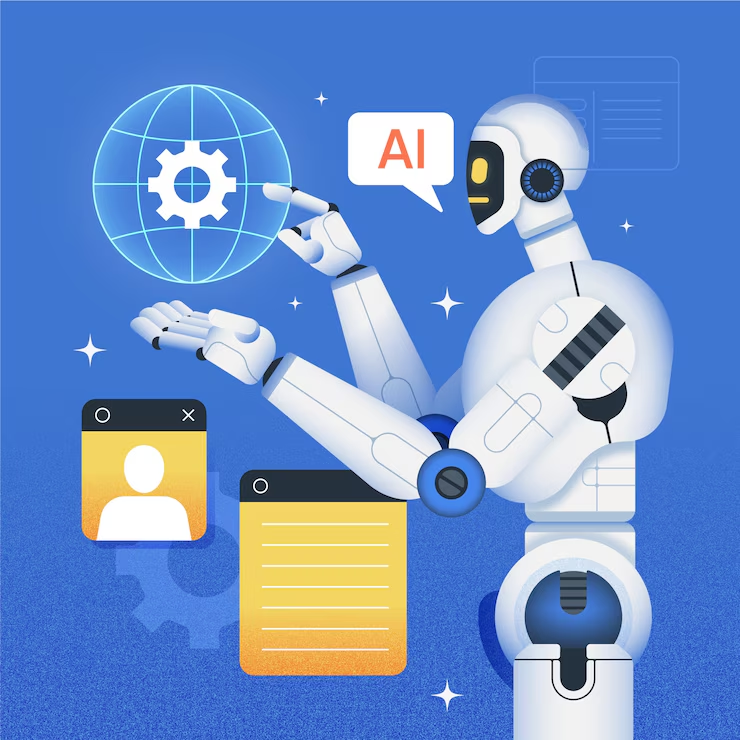Best ai tools for business in 2024
Artificial Intelligence (AI) tools for business have become indispensable in today’s digital age, offering transformative solutions across various sectors. This comprehensive guide explores the top AI tools available in 2024, their practical applications, benefits, and future trends.
Introduction to ai Tools for Business
AI tools for business refer to a broad spectrum of technologies that utilize machine learning and data analytics advancements. These tools are designed to automate tasks that traditionally require human intelligence, such as data analysis, customer service, and decision-making. By leveraging AI, businesses can achieve significant operational efficiencies and improve competitiveness in today’s fast-paced digital landscape. In 2024, AI tools have become indispensable for organizations looking to streamline workflows and enhance productivity.
They are crucial in optimizing various business processes, from customer interaction to supply chain management. By automating routine tasks and providing data-driven insights, AI tools enable businesses to allocate resources more effectively and make informed strategic decisions.
Moreover, AI tools deliver superior customer experiences by personalizing interactions, providing real-time support through chatbots, and anticipating customer needs. This enhances customer satisfaction and strengthens brand loyalty and retention rates
. Overall, AI tools for business in 2024 are transformative, empowering organizations across industries to innovate, adapt to market changes, and achieve sustainable growth. As companies continue to integrate AI technologies into their operations, the potential for enhancing efficiency and driving competitive advantage continues to expand.

Importance of ai Tools for Business
“In 2024, AI tools are not just advantageous but essential for businesses aiming to stay competitive in a rapidly evolving digital economy.” This statement highlights the critical role that AI tools play in the business landscape in 2024. It emphasizes that AI tools are not merely beneficial but necessary for businesses that want to maintain competitiveness in an environment that is continually changing due to digital advancements.
“By harnessing AI, businesses can achieve operational efficiencies, improve customer experiences, and unlock new growth opportunities.” This part explains the benefits of AI adoption for businesses. When businesses integrate AI tools into their operations, they can streamline processes, reduce costs, and increase productivity, leading to operational efficiencies. AI enhances customer experiences by providing personalized interactions, faster responses through AI-powered customer service, and more tailored marketing efforts.
Additionally, AI enables businesses to uncover insights from vast amounts of data, which can lead to identifying new market trends, optimizing strategies, and discovering new revenue streams, thus unlocking growth opportunities. Together, these points emphasize that in 2024, AI is not just a technological advancement but a strategic imperative for businesses looking to thrive and succeed in a highly competitive digital economy.
AI-Powered Customer Service Tools
“AI-powered customer service tools, such as chatbots and virtual assistants, revolutionize customer interactions by providing instant responses to inquiries, handling routine tasks, and personalizing user experiences. These tools operate 24/7, ensuring consistent support and enhancing customer satisfaction.”
Breaking it Down:
AI-Powered Customer Service Tools
These are tools that use artificial intelligence to assist with customer service tasks. Examples include chatbots and virtual assistants.
Chatbots and Virtual Assistants
- Chatbots: Automated programs that can have conversations with customers. They usually handle text-based interactions on websites or messaging apps.
- Virtual Assistants: These are more advanced than chatbots, and they can handle both text and voice interactions. Examples include Siri, Alexa, and Google Assistant.
Revolutionize Customer Interactions
These AI tools significantly change and improve how businesses interact with their customers. They provide a more efficient, responsive, and personalized service.
Providing Instant Responses to Inquiries
AI tools can immediately respond to customer questions without delay, improving customer satisfaction as they don’t have to wait for a human representative.
Handling Routine Tasks
AI tools can handle repetitive and simple tasks like answering common questions, booking appointments, and processing basic requests. This frees up human agents to focus on more complex issues.
Personalizing User Experiences
AI tools can tailor their responses based on the customer’s history and preferences, providing a more personalized and relevant experience.
Operating 24/7
AI tools do not need breaks, sleep, or holidays. They can provide support any time of the day or night, ensuring that customers always have access to help.
Ensuring Consistent Support
AI tools provide the same quality of support every time. This consistency helps in maintaining a high level of customer satisfaction.
Enhancing Customer Satisfaction
By being fast, efficient, and personalized, AI-powered customer service tools improve the overall experience for customers, making them happier and more likely to stay loyal to the business.
AI Tools for Data Analysis
Data analysis is fundamental to strategic decision-making. AI tools for data analysis utilize advanced algorithms to process vast datasets rapidly, identify patterns, and extract valuable insights. Businesses can optimize marketing strategies, predict trends, and mitigate risks by automating data-driven tasks.
AI in Marketing Automation
What is Marketing Automation?
Marketing automation refers to the use of software to automate repetitive marketing tasks. This can include sending emails, managing social media posts, and running ad campaigns. The goal is to make these tasks more efficient and effective, saving time and improving results.
How Does AI Enhance Marketing Automation?
When artificial intelligence (AI) is integrated into marketing automation, it significantly enhances the capabilities and effectiveness of these tools. Here’s how:
- Streamline Campaigns:
- Automation: AI tools can automate the entire marketing campaign process, from planning to execution. This means marketers can set up automatic campaigns based on certain triggers or schedules.
- Efficiency: By automating these processes, businesses can save time and reduce the risk of human error.
- Personalize Content:
- Tailored Messages: AI can analyze customer data to understand preferences and behaviors. This allows businesses to create personalized marketing messages that resonate more with individual customers.
- Improved Engagement: Personalized content is more likely to catch customers’ attention and engage them, leading to better marketing outcomes.
- Target Audiences with Precision:
- Audience Segmentation: AI can segment audiences more accurately by analyzing various data points. This ensures that marketing messages reach the right people at the right time.
- Increased Relevance: By targeting the right audience, businesses can increase the relevance of their marketing efforts, making them more effective.
Automating Repetitive Marketing Tasks
AI tools excel at handling repetitive tasks that would otherwise take up a lot of time for human marketers. Some examples include:
- Email Campaigns: AI can automate emails to customers based on triggers such as their behavior, purchase history, or specific dates like birthdays. This ensures timely and relevant communication.
- Social Media Management: AI tools can schedule and post content on social media platforms, monitor engagement, and respond to basic customer inquiries. This helps maintain a consistent online presence without manual effort.
Optimizing Engagement and Conversion Rates
The ultimate goal of using AI in marketing automation is to improve engagement and conversion rates. Here’s how AI helps achieve this:
- Data-Driven Insights: AI analyzes data from past campaigns to identify what works and what doesn’t. This information helps marketers optimize their strategies for better results.
- Predictive Analytics: AI can predict future trends and customer behavior, allowing businesses to adjust their marketing efforts to maximize engagement and conversions proactively.
- Real-Time Adjustments: AI can make real-time campaign adjustments based on current performance data. This ensures that campaigns remain effective throughout their duration.

AI for Sales Optimization
AI tools for sales optimization empower sales teams by analyzing customer data, predicting buying behavior, and recommending strategies to maximize conversions. These tools enhance lead management, improve sales forecasting accuracy, and optimize the sales pipeline for sustained growth.
AI for Human Resources Management
AI is reshaping human resources (HR) management by automating recruitment processes, assessing candidate suitability, and enhancing employee engagement. AI tools streamline administrative tasks, such as payroll processing and performance evaluations, allowing HR professionals to focus on strategic initiatives.
AI Tools for Financial Management
Financial management AI tools automate accounting procedures, monitor financial transactions, and generate real-time insights into business finances. By improving accuracy in budgeting and forecasting, these tools empower businesses to make informed financial decisions and achieve long-term stability.
AI in Supply Chain Management
Supply chain management benefits significantly from AI-driven technologies that optimize inventory management, forecast demand, and streamline logistics operations. AI tools enhance supply chain visibility, reduce costs associated with inventory management, and improve delivery efficiency.
AI for Cybersecurity
Cybersecurity remains a top priority as businesses increasingly rely on AI tools to detect, prevent, and respond to cyber threats. AI-powered cybersecurity solutions leverage machine learning algorithms to monitor network activity, identify anomalies, and safeguard sensitive data against unauthorized access.
How to Choose the Best ai tools for business
Selecting the right AI tools involves assessing business objectives, evaluating scalability and integration capabilities, considering implementation costs, and ensuring vendor support. Customizing AI solutions to align with specific business needs enhances operational effectiveness and maximizes return on investment (ROI).
Future Trends in ai tools for business
AI tools are poised to evolve with advancements in natural language processing, predictive analytics, and AI-driven automation. Future trends include:
- Enhanced personalization in customer interactions.
- Greater integration across business functions.
- Heightened data security measures.
Conclusion of ai tools for business
AI tools for business in 2024 represent a transformative force, driving innovation, efficiency, and competitiveness across industries. By adopting AI technologies strategically, businesses can navigate challenges, capitalize on opportunities, and achieve sustainable growth in an increasingly digital economy.
Check out Our Company Site: Delta City Group Of Companies
Find Your Jobs On Job Zender




